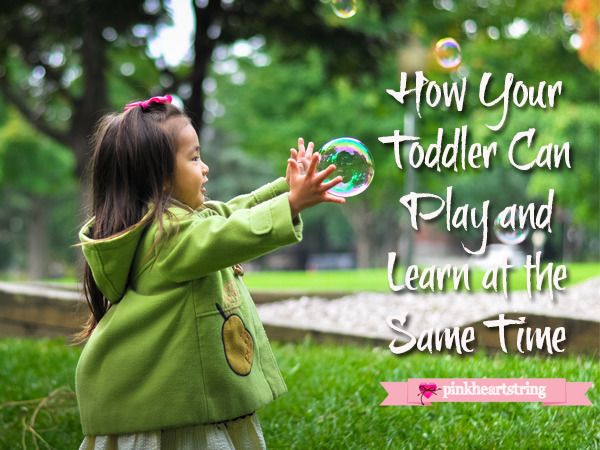Our kids can play all day and they don’t seem to get tired. But did you know that playing can help them a lot? Here is a guest post from Sally who have shared to us some helpful articles last month.

Parents who are looking for a way to have fun with their child while promoting physical, emotional and cognitive health should look into a variety of puzzles for their child. Child’s provide so many benefits to the child’s development, and it’s something that you can do with your child as a family activity. Puzzles and problem solving activities for toddlers are also ways that your child can spend time on their own.
There is a wide selection of puzzles available for infants up through the toddler age and into grade school that target the improvement of mental and physical skills. You can start your child out at a young age to start problem solving with puzzles, and increase the difficulty of the puzzles as they grow. There are many levels and suggested ages to look at as they begin their journey solving puzzles. Here are a few reasons to include puzzles in your child’s daily routine.
Photo Courtesy to Jussi Linkola/Flickr.com
Cognitive Benefits
Options like a snake cube or jigsaw puzzles are going to help your
child’s cognitive development in a variety of ways. They are going to learn how to recognize shapes and patterns, and figure out how to make shapes connect with each other. The child’s memory has to work to remember how to turn and move the pieces around, and to remember which pieces didn’t fit when tried. At first the child may have a hard time recognizing which points connect together to create a total picture, but over time they will know how to align the pieces so they slide into place, or so they can easily be pushed or snapped into place.
Sorting the pieces by classification, like color, character and edges helps improve eye recognition tactics. The child will be able to see that just like the puzzle, and many things around them are built like a puzzle. They will have to solve problems with their hands using puzzles, and learning how to solve a snake cube puzzle is something they can progress to.
Physical Development Enhancement
Moving and turning the puzzle pieces helps develop fine motor skills, which will help the child with tying shoes, buttoning their pants, writing and coloring and more. Hand to eye coordination is also going to improve. The mind has to deliver the right message to the hands, and over time the puzzle configuring and mind to body messages will improve and get faster. This allows the child’s hands and mind to learn to react to things more quickly.
Puzzle activities that stack will help your child recognize and learn about weight distribution and balance. Working with the puzzles by stacking, sorting and balancing, will help your child make things fit, when cleaning their room or doing other
physical activities.
Emotional Encouragement and Improvement
Puzzles are great for encouraging emotional development and improving confidence. The child will have to see that if they don’t give up and keep trying, they can use their mind to get through their struggles and situations. Finishing the puzzle is a goal, and the child learns that their goals can be accomplished even if they have to work on them a little at a time.
The puzzles can also show your child how to work and solve problems independently, without you guiding them step by step. They should learn to resolve problems and try all possible positions or solutions until asking for help. The puzzles are going to improve the mind by strengthening their confidence, decision-making and critical thinking.
There are puzzle games that you sort by color, size and shape. As your child gets older puzzles can help to teach numbers, letters, animals and other things, and the child will think that they are
playing a game and having fun. You can use puzzles to help the child learn without it feeling like you are trying to get them to memorize information.
If your child is having any struggles or is missing any milestones in their physical or intellectual development, ask their pediatrician if there are any specific types of puzzles that could help them overcome this or improve the concerns. Having time where you work with the child to see if they are doing the puzzles correctly, and having time to let the child explore and work on their own is going to be the most ideal for their progression while they develop and grow.
About the Writer
This post is written by Sally is a working woman and a mother of 2 kids (currently 10 and 8), living in a suburb of Brisbane. As mom, she learn so much about providing healthier and happier lifestyle for her kids. You can find more of her articles being featured on www.mouthsofmums.com.au.
Images provided by Sally.



